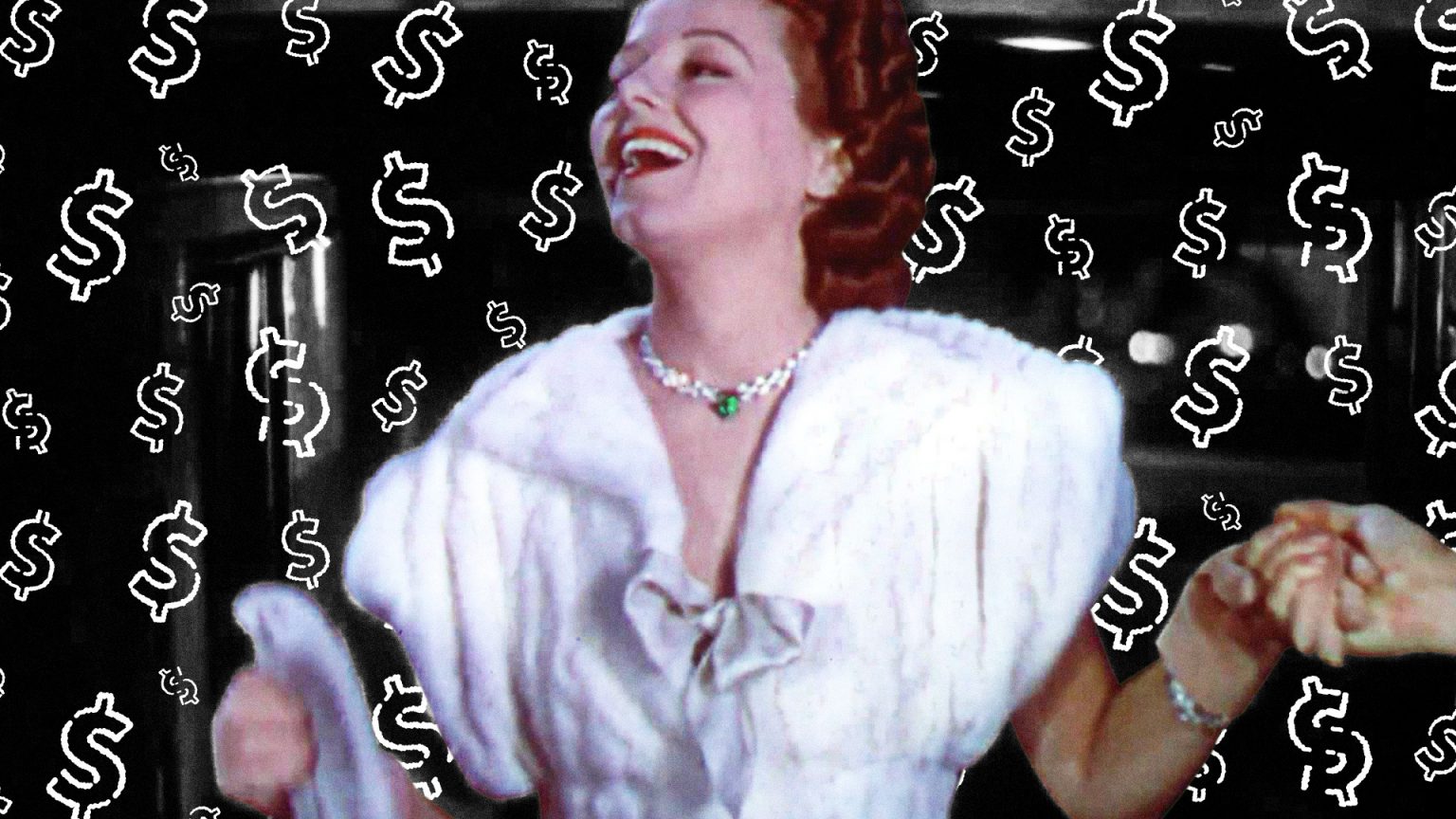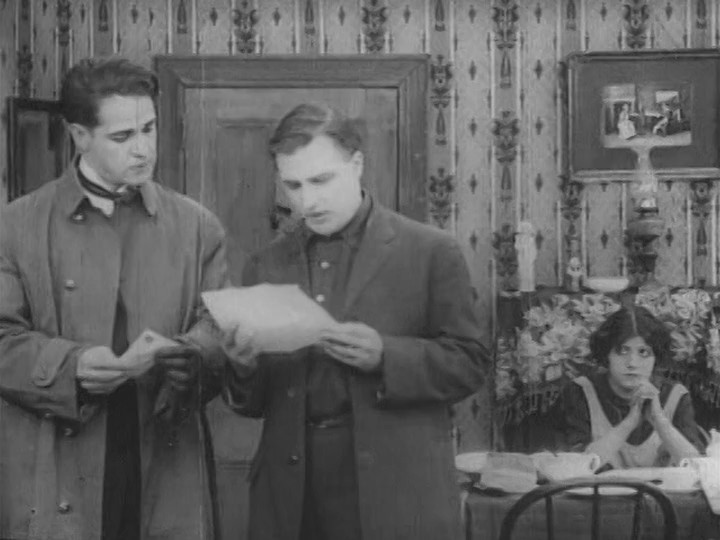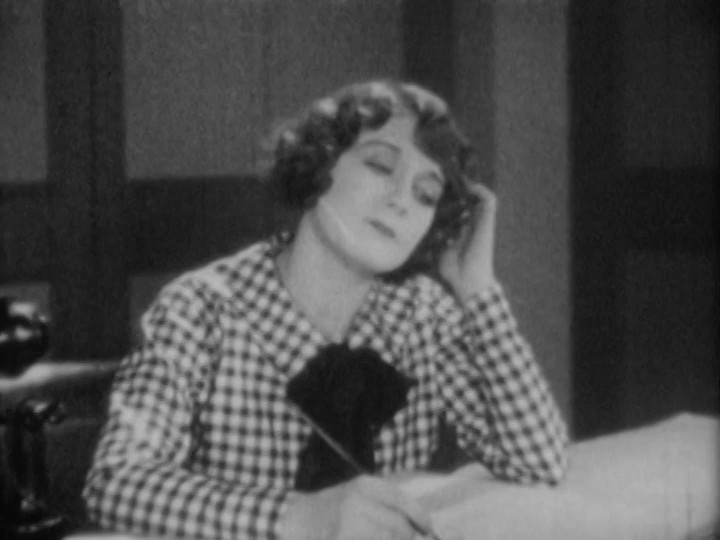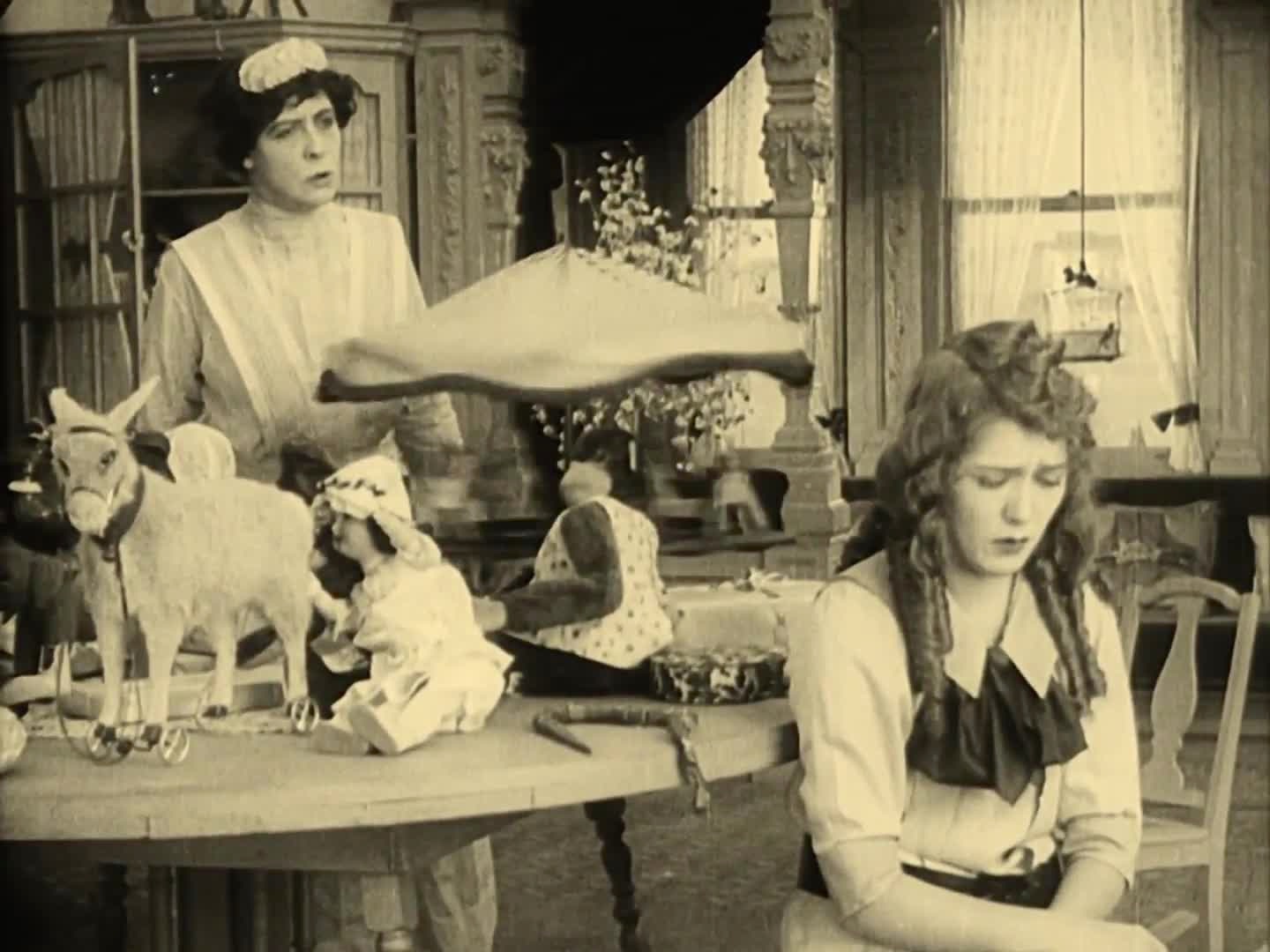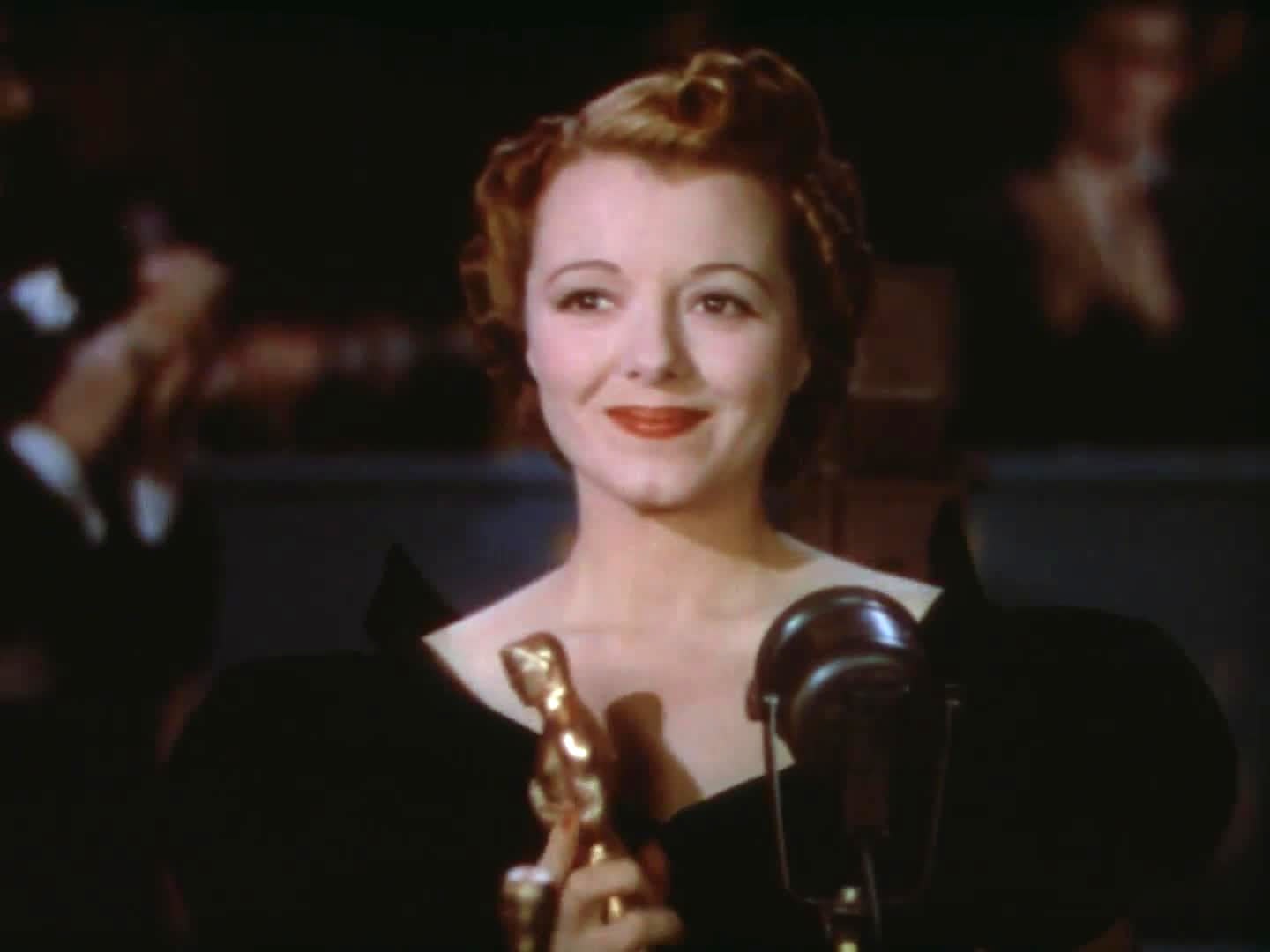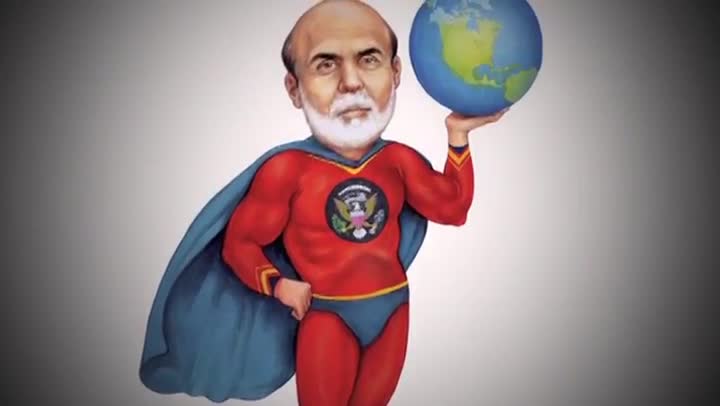Lauren Greenfield’s Generation Wealth examines the phenomenon of fetishizing the “lifestyles of the rich and famous.” It’s a topic particularly relevant under our current president, who before entering politics, made his name on publicly branding himself as “fabulously rich.” Exemplifying the “American Dream” as a monetary one, he reminds us every day that getting it, spending it, and flaunting it is, for many, the eternally transfixing, just-out-of-reach carrot at the end of the stick of capitalism.
Greenfield’s documentary covers everything from current extremes of “spoiled-bratdom,” covetousness, and self-commodification, to the political aspects of upward mobility. Americans have always had a love-hate relationship with wealth and class, both envying and resenting the more financially fortunate. This theme has been omnipresent in cinema from the get-go, as movies have simultaneously celebrated extravagance and chastised its perceived moral failings. What you’ll find below is Fandor’s survey of films—going back to the medium’s very beginnings—which reflect that eternal conflict between seeing money as “the root of all evil,” and wanting it nonetheless.
Get Rich Quick and The Kleptomaniac
Proof that “the more things change, the more they stay the same” comes in the form of these two early silent-era shorts, both over a century old. In 1911’s Get Rich Quick, a working-class couple gets involved in a shady investment scheme, and finds their dreams of material and social elevation coming true. But they’re horrified to learn that the law-skirting company they profited from made its money on the backs of other gullible families that it is impoverished.
Six years earlier, The Kleptomaniac by cinema pioneer Edwin S. Porter (of The Great Train Robbery) offered an even bleaker lesson. In it, a rich matron caught shoplifting for thrills at a department store is let off with an “Oh you naughty girl” wink by the court. Yet moments later, the very same judge hands the stiffest possible sentence to a poor woman who’d stolen only out of a desperate need to feed her child. Then as now, justice often seems to work differently for the well-connected.
Watch Now: Get Rich Quick and The Kleptomaniac
That Certain Thing
Named after the hugely popular 19th-century novelist, the “Horatio Alger myth” remains a fundamental element of the American mindset: The faith that hard work and sacrifice can take any humble-born citizen “from rags to riches.” Yet at the same time, it’s always been a favorite fantasy that “someday my prince will come,” with love (or at least sex appeal) whisking a deserving soul from penury to penthouse in one fell swoop.
Having it both ways is this charming early feature by Frank Capra, who hadn’t yet become famous for such classics as It’s a Wonderful Life and It Happened One Night. The vivacious Viola Dana plays an ambitious shop-girl determined to marry a millionaire. She actually succeeds in snagging the ne’er-do-well heir to a restaurant fortune (Ralph Graves). But when his father learns that he’s married a “gold-digger,” they’re cut off without a penny. Fortunately for all, the development of true love between these newlyweds inspires them to make their own fortune the honest way, more or less.
Watch Now: That Certain Thing
Mother and The Poor Little Rich Girl
In Generation Wealth there is a discussion of “conscious parenting,” a newfangled term for the familiar phenomenon of people who find their values and lifestyle growing more conservative once they’ve had children. You couldn’t find a more flamboyant illustration of unconscious parenting than Sian Heder’s 2006 short Mother.
A young woman living in a van (Ashleigh Sumner) is scavenging for discarded room-service food when she’s mistaken for hotel staff by a blonde, boozy, and blowsy guest (Angela Featherstone). The latter is a neglected Beverly Hills housewife who is going out on a date—leaving her very neglected toddler in the hands of this shocked stranger, whom she blithely appoints as a babysitter.
For a less acidic take on irresponsible child-rearing amongst the privileged, check out silent superstar Mary Pickford’s 1917 smash The Poor Little Rich Girl. In it, the titular young heroine is ignored by socialite parents until a near-tragedy (and elaborate fantasy sequence) brings them to their senses. This popular role, later played by Shirley Temple, was first originated onstage by Violet Dana of That Certain Thing.
Watch Now: Mother and The Poor Little Rich Girl
A Star is Born
Much as we may envy the wealthy and famous, we also enjoy seeing them suffer—re-enforcing the notion that money can’t buy happiness. Itself a loose remake of the 1932 film What Price Hollywood? this famous tale would prove so enduring that it’s been remade over three times since—once in 1954 with Judy Garland and James Mason, twenty-two years later with Barbra Streisand and Kris Kristofferson, and again this fall with Lady Gaga and Bradley Cooper.
Here, winsome Janet Gaynor plays the aspiring actress whose non-existent career gets jump-started thanks to the patronage of Frederic March’s established matinee idol. They marry, but she’s helpless to compete with the other love of his life: Alcohol. This tale of self-destruction amidst showbiz glamour remains one of the great Hollywood movies about itself.
Watch Now: A Star Is Born (1937)
Money for Nothing: Inside the Federal Reserve
Most folks have a basic grasp of how labor, taxation, consumption, and investment factor into an overall economy. Some are also aware that the U.S. economy has (since roughly the middle of the last century) gone from being manufacturing-based to primarily driven by consumerism. But relatively few understand the complex financial shell game that shores up the U.S. dollar while also making it more vulnerable.
Jim Bruce’s 2013 documentary examines the key role of the Federal Reserve, which was created exactly one century earlier to monitor the U.S. economy, and (theoretically) protect it from collapsing. But does it still serve that function as effectively as possible? Or is it in need of more oversight itself? With arguably the world’s most boastful purported billionaire serving as our President, the rich are getting richer — while the rest of us worry that the government will cease to care about anyone else’s economic well-being.
Watch Now: Money for Nothing: Inside the Federal Reserve

